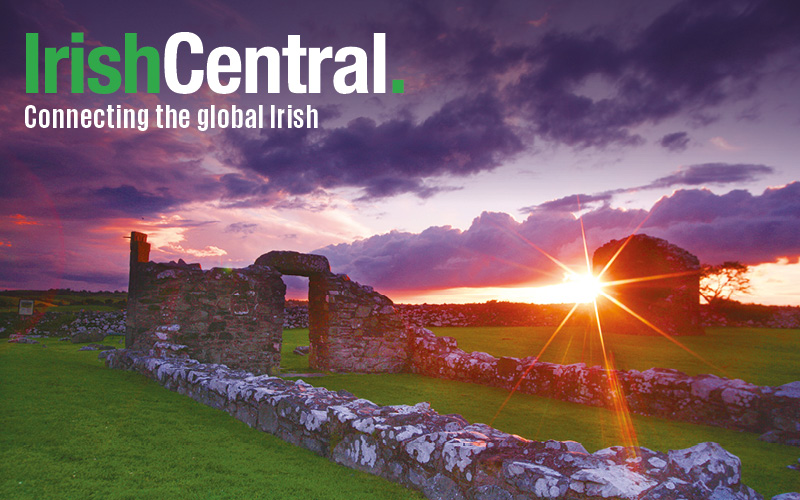Seventy-eight percent of Irish people claim they would vote for Britain to remain in the EU if they had a say in the so-called 'Brexit' referendum taking place on June 23.
Concern has been shown throughout Ireland for the effect on both the economy and on the peace process if the British people vote to leave the European Union later this week, with many feeling it could also lead to further debate about our own membership. In a survey conducted by Irish research agency Ignite, 74% of Irish people believe Brexit would impact negatively on the Irish economy.
Male voters would be more likely to vote to leave the EU than female voters, although 74% would still vote to stay.
The remain votes was highest among those aged 55 and up of whom only 16% voted to leave while 31% of 35-44 voters wished to leave.
The survey also looked further into the effects the Brexit debate is having on our own views on EU membership, and whether the debate across the Irish Sea is making the Irish public wish for their own referendum on the matter.
Ignite found, however, that only 36% of Irish people wish to hold an EU exit referendum, with 76% saying they would vote for Ireland to remain if such a referendum was held.
Again the 35-44 age group showed themselves to be the most Eurosceptic with 46% wishing for our own vote.
Taoiseach (Irish Prime Minister) Enda Kenny was among those campaigning for the Remain vote in Thursday’s referendum. The taoiseach traveled to the UK on a two-day trip last week to encourage the estimated 60,000 Irish UK residents who have a vote on Thursday to vote 'Remain,' telling them that the referendum would not just affect their lives but the lives of those in Northern Ireland. He continued to stress the effect it would have on Irish-British relations. The taoiseach bases his argument on a prediction from the Economic and Social Research Institute, which believes Brexit will result in a fall of 20% in bilateral trade.
Kenny’s concerns about Northern Ireland were also voiced by two former British Prime Ministers, Tony Blair and John Major, when they spoke on behalf of the Remain side in Northern Ireland recently. Both former prime ministers believe a leave vote would have a detrimental effect on the peace process, which has received $3.5 billion (£2.4 billion) from the EU between 2007 and 2013.
In particular, the issue of the Irish border between the Republic of Ireland and Northern Ireland is still full of uncertainty.
Read more: British Chancellor of the Exchequer warns Brexit would “shock” Northern Ireland
Until now, the Common Travel Area has allowed the free movement of travel to all parts of Ireland but it is unknown what kind of deal would be brokered in the event of Brexit. Thirty percent of Irish imports come from the UK, valued at more than $1.4 billion(£1 billion) a week.
Sky News’s David Blevins believes that Northern Ireland sovereignty would immediately become a hot topic if Northern Ireland leaves the EU, predicting that Sinn Féin will demand a referendum on reunification with the Republic
Writing for the Huffington Post, journalist and lawyer Rory Fitzgerald believes that the Irish living in the UK who are entitled to a vote will fall into the Leave camp, however.
This could be backed up, at least anecdotally, with the recent video of an Irish man wearing a Co. Mayo jersey telling a British news agency that he will be voting to leave, ironically, because he wants to put a stop to immigration to the UK.
Fitzgerald believes that as many as 1.7 million Irish votes have not been taken into consideration in polling and that it should not be assumed that Irish in the UK will vote “Remain” as one.
Writing about his own experience working as a lawyer in Brussels, an experience he pinpoints as transforming him into a Eurosceptic, Fitzgerald says the effect of a Brexit vote on Ireland is being overstated.
“The EU is not well run and its institutions lack real democratic control. I lived and worked in Brussels as a lawyer and witnessed first hand the contempt for democracy and ordinary people held by many Eurocrats.” he writes.
“Leaving the EU and focusing more on global trade could benefit the UK and consequently Ireland in the long term. Yet, even if the most fearful economists are right, the UK and Ireland will still be rich countries in the event of Brexit, just perhaps very slightly less so.”
According to the Financial Times, as of June 20, the Remain and Leave camps are neck and neck, each polling at 44% with 12% of the nation still undecided just two days before the vote.
There are currently 500,000 Irish people living in Britain, although not all have a vote. 300,000 British people live in Ireland.
While speaking in England, Taoiseach Kenny stated that no membership referendum would be held in Ireland regardless of the UK outcome.
It appears the UK has started a trend, however, that may see years of uncertainty facing the European alliance. Greece and the Netherlands are also reported to be in the midst of debates regarding their membership and exploring the possibility of a referendum.
If the UK were to leave the EU, a two-year plan would be put in place to wind down their involvement, offering the Irish government time to establish their own arrangements in terms of trade and border control.
H/T: Ignite




Comments